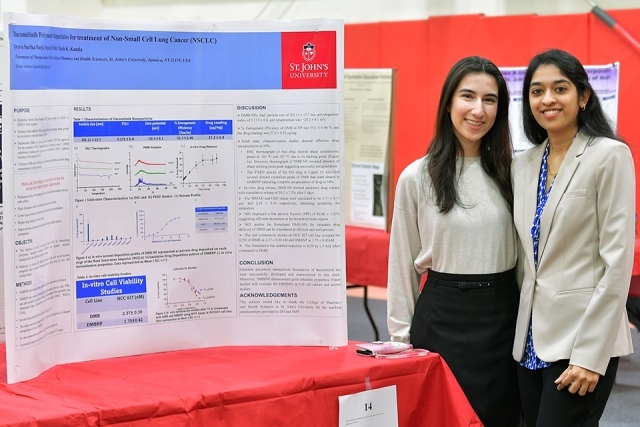
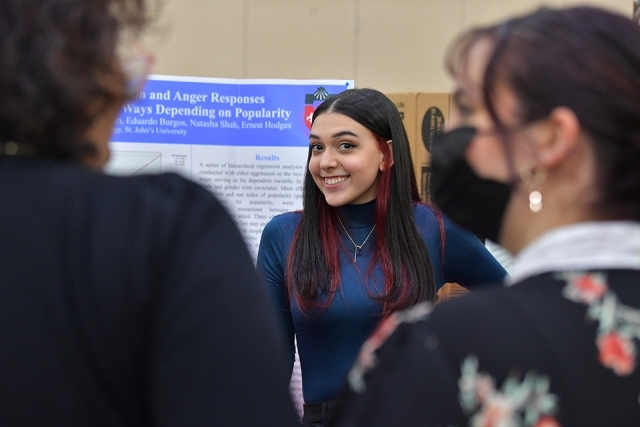
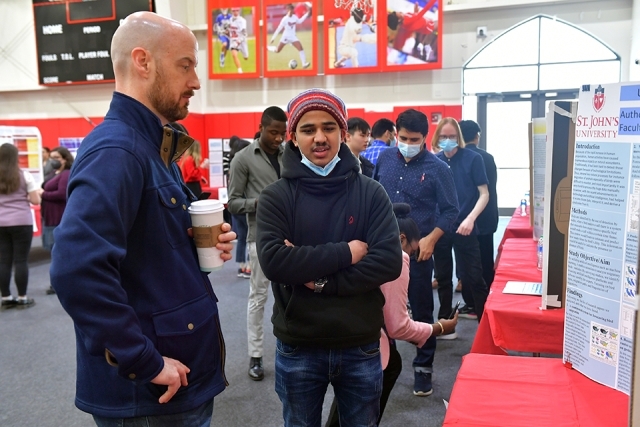
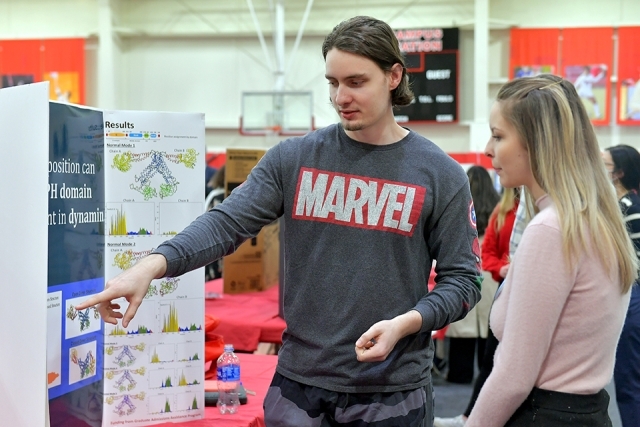
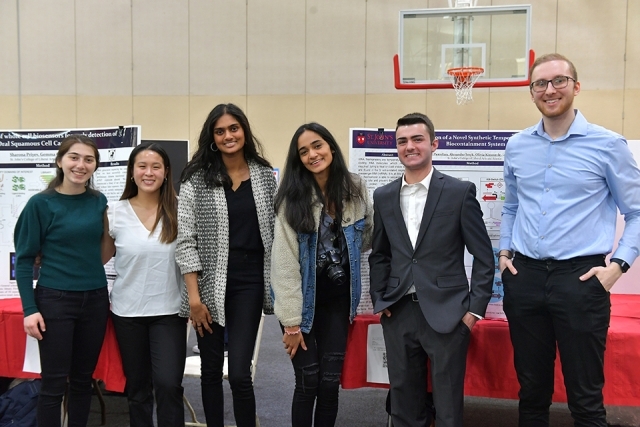
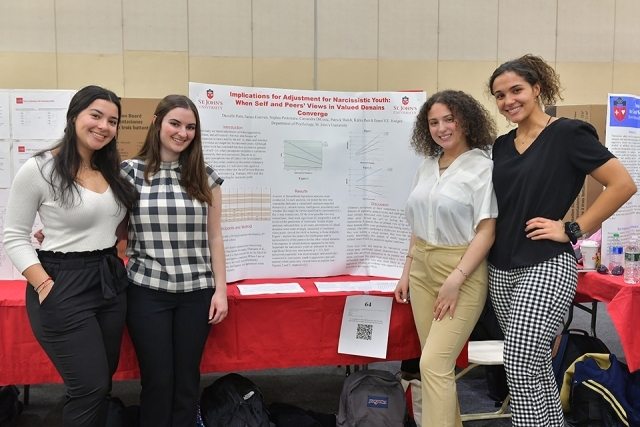
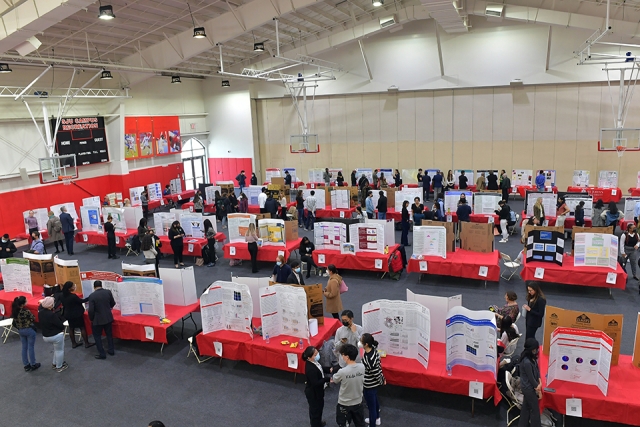
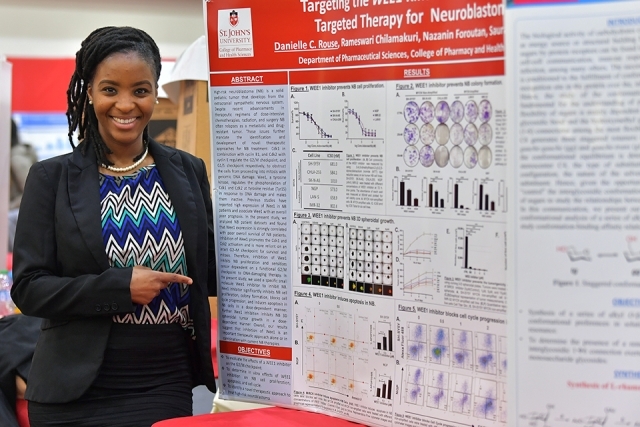
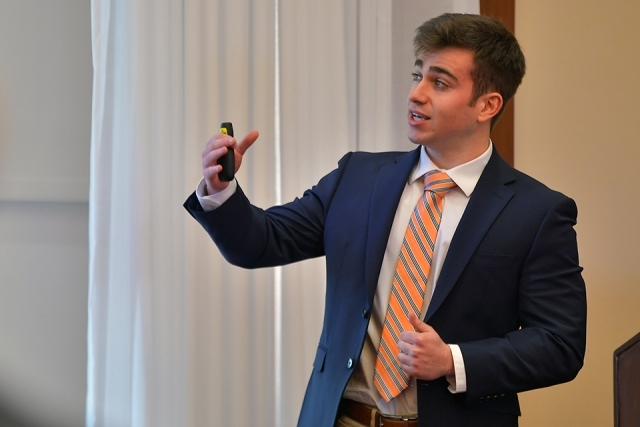
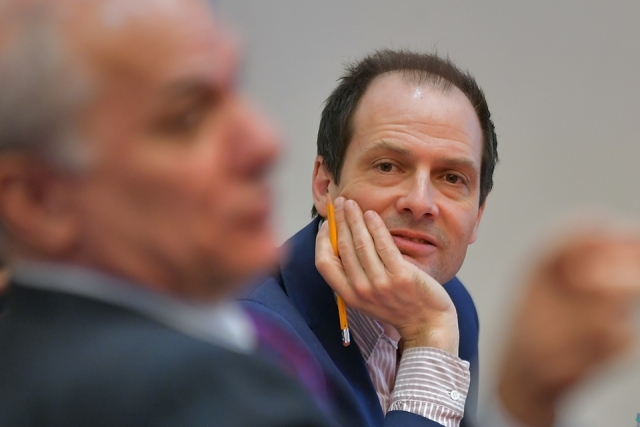
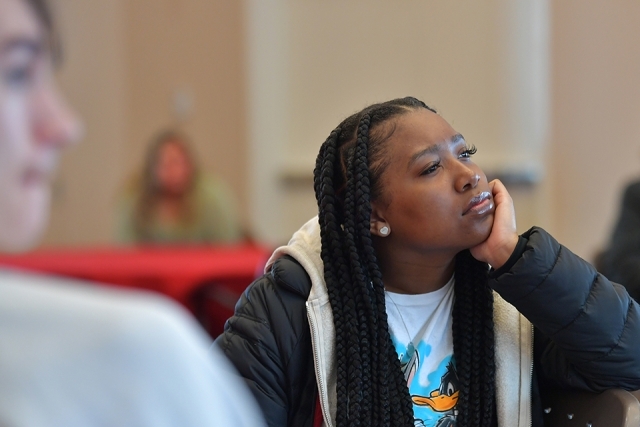
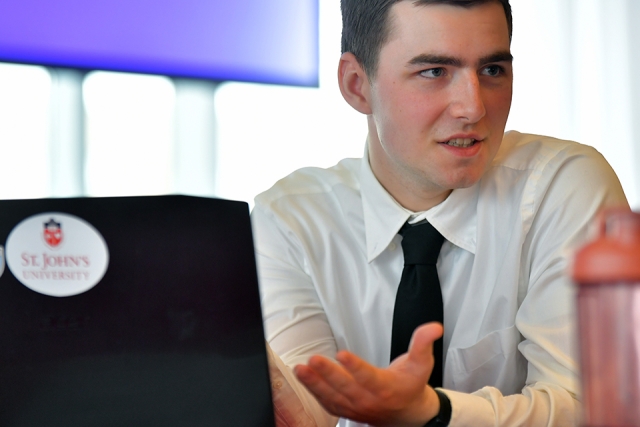

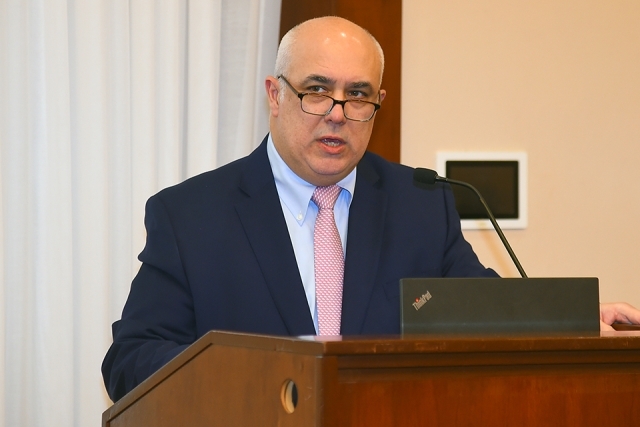
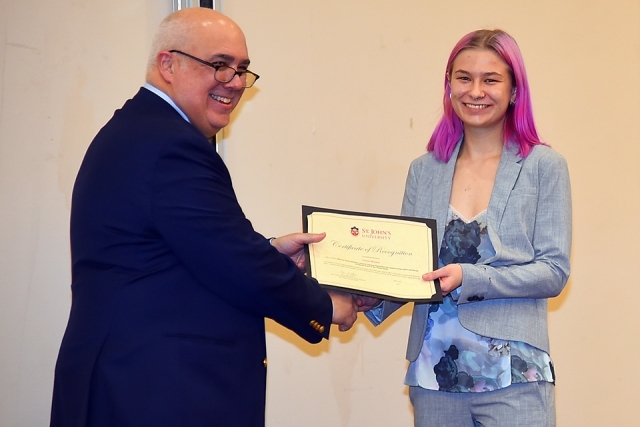
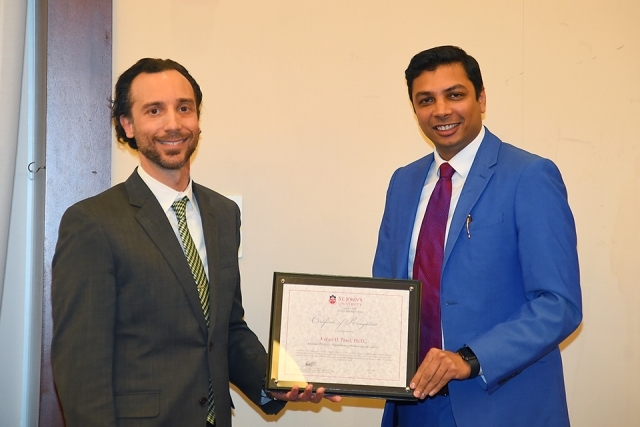
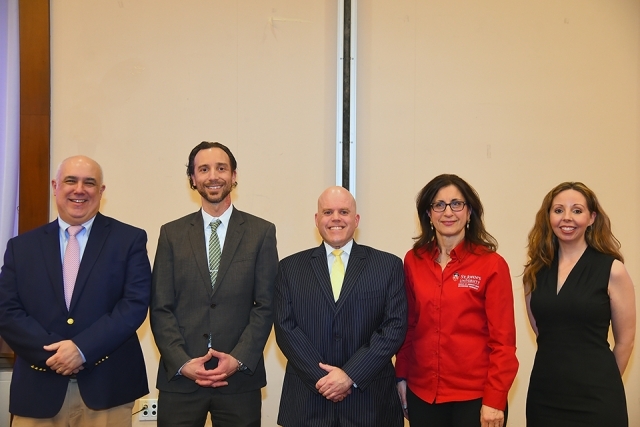

















Students showcased their research and academic accomplishments as St. John’s University hosted their poster presentations on Monday, April 4, during the first of an intensive, two-day Student Research Conference that took place on the Queens, NY, campus, as part of Research Month.
Held annually in the spring, Research Month is a celebration of academic excellence as students present scholarly work and explore their projects’ impacts on society with colleagues and classmates. Research Month highlights include the conference posters event, which was followed the next day by more student presentations and in-depth panel discussions spanning the Science, Technology, Engineering, and Mathematics (STEM) fields, as well as the humanities.
“This event reminds us of the diverse range of research and scholarship happening at our institution and of the importance of students and faculty working and thinking together to make change,” said the principal organizer of the conference, Marc E. Gillespie, Ph.D., Vice Provost for Graduate Education, Clinical Operations and Research, and Assessment.
“We aim to bring students and faculty together in scholarship and to cultivate the free exchange of ideas and approaches to the challenges of our world.”
“Involving students in research represents a cornerstone of engagement, allowing them to take what they learn in the classroom and apply that knowledge to real-world challenges,” said Simon G. Møller, Ph.D., Provost and Vice President for Academic Affairs, University Distinguished Professor, and Provost Endowed Chair.
A total of 121 trifold boards that undergraduate and graduate students assembled for the poster presentations were on display in Taffner Field House. More than 300 students participated, representing a wide range of research from across many of the University’s schools and colleges.
Kelsey Jenkeleit, a speech therapist and doctoral candidate in the Department of Curriculum and Instruction in The School of Education, examined the impact of the COVID-19 pandemic on parent-teacher communication in special education. “Before the pandemic, communication between parents and teachers often happened a handful of times per year, typically at scheduled, formal meetings. This all shifted when the pandemic hit, and schools across the country shut down,” Kelsey explained. “During the pandemic, parents got to know me better from my living room couch, where I was teaching all day.”
She was surprised that her research revealed her communication with parents at virtual parent-teacher conferences increased from 10 to 50 percent during the year she spent teaching remotely. “I think this increase in parent-teacher communication will continue because of the increase in the use of technology. Now, we phone or Zoom the parents, while in the past, we were only allowed to communicate through in-person meetings. We still hold parent-teacher conferences remotely,” she said.
Diana Nikoloski, a Public Relations major in The Lesley H. and William L. Collins College of Professional Studies, explored how low-income women in Zanzibar and Kenya benefit from their work as seaweed farmers. Noting seaweed is beneficial to the environment because it reduces harmful carbon dioxide levels in the water and air, Diana explained that Kenyan women sell the seaweed—which they grow in plots in the ocean—to the local government, while the women in Zanzibar sell seaweed to makers of products such as soaps, shampoos, and fertilizer.
“These women do not have a formal education, so being able to make money for their families is amazing,” said Diana. “And they can make this money by themselves, without help from their husbands, who are already busy as hunter-gatherers.”
Pallak Sharma, a Pharm.D. candidate in the College of Pharmacy and Health Sciences, researched how pharmacists can play a key role in dispelling patients’ reluctance to get COVID-19 vaccines and instead build their “vaccine confidence” and willingness to get vaccinated.
“The results of my survey showed that although there are many barriers to building vaccine confidence, most of the hesitancy can be reduced if pharmacists could have more time with patients to discuss the benefits,” Pallak said. “This could result in higher vaccination rates across the nation, which can decrease the spread and severity of COVID-19, while simultaneously facilitating a stronger pharmacist-patient relationship.”
Junior Keren Landrón, who is of Dominican descent, devoted her research to understanding the historical origins of what she described as “anti-Haitian sentiment” within the Dominican population living in the Dominican Republic. “There is this notion among Dominicans, which include members of my family, that Haitian people are the aggressors. Why is that, especially since both Dominicans and Haitians share an island?” asked Keren, who is earning a Bachelor of Arts and a Master of Arts degree in History in St. John’s College of Liberal Arts and Sciences.
In outlining her thesis statement, Keren said, “Concepts of Dominican nationalism are crafted toward an anti-Haitian ideology that was propagated by disgruntled Dominican elites as a means of legitimizing and justifying their quest for independence.”
Business Analytics major Robert K. Fossati was among students from The Peter J. Tobin College of Business to participate in student presentations and panel discussions during the second day of the conference, held in the D’Angelo Center. He developed a statistical model to identify factors that affect salary amounts for National Basketball Association (NBA) players. Noting the average annual salary for those players is approximately $20 million, Robert said his research is of particular interest not only for the team owners but for NBA players and agents, as well.
“The players want to be sure that they are being compensated fairly, and the agents want to acquire more clients,” he said.
Research Month officially concluded on April 5 in the D’Angelo Center Ballroom with the 33rd Annual Grants Reception, which recognized faculty for their research contributions. Faculty members who were acknowledged include Syed Ahmad Chan Bukhari, Ph.D., Assistant Professor, Department of Computer Science, Mathematics, and Science, Collins College of Professional Studies; Erica Y. Jacobs, Ph.D., Assistant Professor, Department of Chemistry, St. John’s College of Liberal Arts and Sciences; and Ketan D. Patel, Ph.D., Associate Professor, Department of Pharmaceutical Sciences, College of Pharmacy and Health Sciences.
